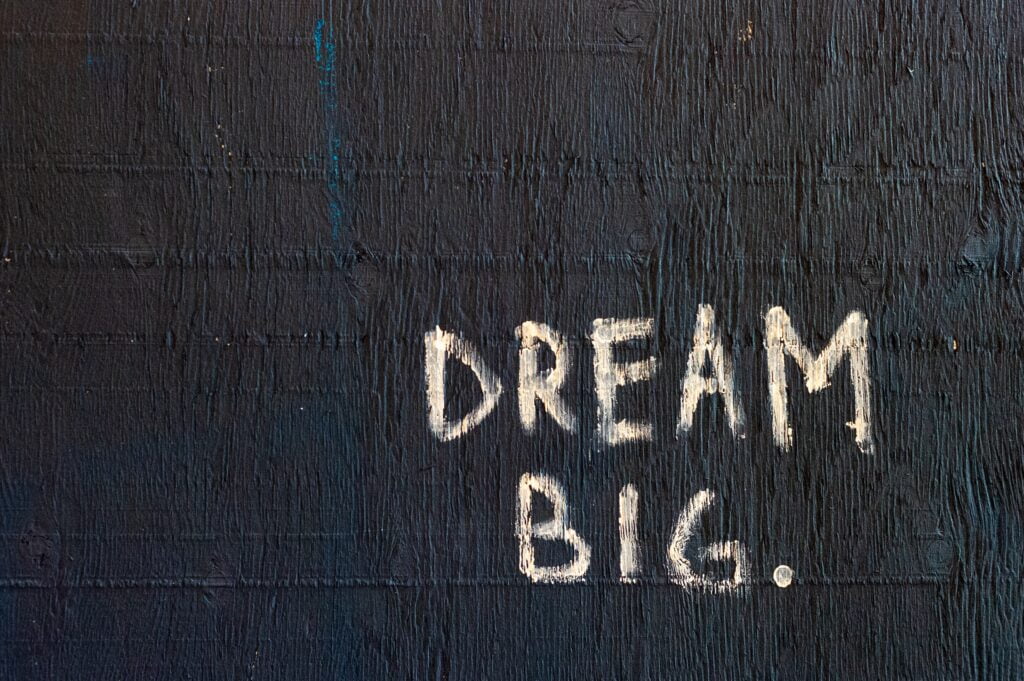Why is it that some adults just can’t help but crush children’s dreams – I don’t get it! Picture the scene, your six year old says they want to be an astronaut and an adult pipes up “ha, in your dreams!” – “maybe you should be a plumber, teacher, builder….something else”.
Then maybe your eleven year old announces one day they want to be a doctor, or they want to have lots of animals and run a farm. Then, an adult cuts them off by stating they don’t think they are clever enough, or strong enough or just enough.
As a parent who focuses on building my children up, supporting them, encouraging them, guiding them and helping them when they need it or ask for it, I find these kinds of adults intolerable.
I honestly can’t fathom why you would crush children like this. Why would you laugh, mock, snigger, or dismiss their dreams, however wild these appear to YOU?
Dreams change
I’m pretty sure that before the age of 20 I wanted to be about 15 different things – that’s perfectly normal, we are allowed to change our minds, the first dream doesn’t have to be the final dream. Changing your mind or switching direction shouldn’t be seen as a bad thing, how wonderful that this is possible.
Adults need to remember that these are children’s dreams, not their own. You aren’t choosing the child’s career path, they need to do that and they may well change their minds multiple times.
As children grow and develop, their thinking matures and often alters around where they see their career path leading. As they start to learn more about the world of work, what is possible, the routes to various careers, and as their interests change, they gradually develop a clearer picture of the direction they would like to go in.
Children need to be supported to change paths if they realise one path isn’t for them. This may be the case with GCSE options, A-level options, college courses or university degrees. It’s very common for young people to start something and realise a term in that it’s really not right for them – that’s OK.
If a child picks all science A-levels for example because they thought they wanted to be a doctor but then decides a few weeks in that actually they’d like to pursue art, that should be explored. Whilst children and young people need to understand that they can’t change their minds constantly with regards to subjects and courses, they shouldn’t be afraid to explore the possibility.
When I applied to university I was accepted onto a course to do a dual honours in sociology and French. I didn’t want to do French, my dad wanted me to. Two weeks before university began I remember having a huge outburst of panic and told my parents I needed to swap course. They felt terrible that I almost did a course I didn’t want to do and helped me to swap the French for applied social studies.
Dreams evolve
Every year, to coincide with the start of the school term I get the children to write down what they want to be when they grow up. I take a photo and we like to look back on these as the years pass by. It’s so wonderful to see how dreams change but also how they evolve.
I’ve always got the younger children to do this exercise as well, even before they started full time school. For the first three years my youngest child wanted to be a T-Rex, so that’s what went down on the paper. Someone did actually say to me “you have told him he can’t actually be a T-Rex haven’t you?” – No, I never told him that, why would I? Instead I let his dream evolve. For the last few years when asked, he’s wanted to be a palaeontologist. The dream of being a T-Rex evolved into the dream of being a palaeontologist, if I’d told him he couldn’t be a T-Rex, that might have disrupted his love of dinosaurs altogether.
Another one of my children wanted to be an actor for a number of years but now wants to be a director. Another example of the evolution of a dream.
Dreams are supposed to be aspirational – that’s the whole point
Dreams are something that light you up when you think about them. They are something you wish for and hope to achieve someday. Dreams are aspirational rather than tangible.
Whilst goals are based in reality, with deadlines and a list of things you can tick off as you achieve them, dreams are different. Dreams are able to stretch your imagination, you can dream to be whatever you want to be, they are supposed to be a couple of sizes too big.
Dreams are incredibly important to a child’s (and adult’s) well-being and they need to be nurtured in order to grow, develop, and come true. Bating off a child’s dreams for being too silly, too unrealistic, or too big is one way to ensure they never come true.
So – encourage, support, and guide children and allow their dreams to grow. Dreams are needed for motivation and inspiration, they encourage children to shoot for the stars and they can change the course of a life.





1 comment
Ugh, this hits way too close to home! The whole “dream-crushing adult” scenario you paint is painfully familiar. My six-year-old wants to be a dragon tamer, and let me tell you, the skepticism from some family members has been off the charts. “Need a game that’ll make you laugh as much as it makes you rage? Basket Random is your pick. Unpredictable physics, one-button controls, and more sideways dunks than you can imagine. It’s basketball, but on an extreme dose of fun!